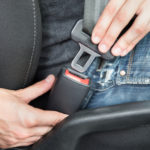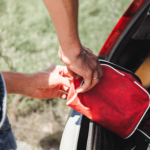
It is very interesting that most people know the reasons why a car breaks down, but many never really consider what they can do to make their cars last longer. It is possible to start your ignition and drive your car, followed by the occasional oil change, and then sell your car as soon as it starts becoming costly to run. Yet there are several habits you can implement to extend the life-span of your car without having to spend anything extra in the process.
Below is our list of handy driving habits that you can start using today to ensure your car lasts for as long as possible.
Break-In Period
A new car that has under 1,000 miles on its odometer, might require a particular break-in period. This typically means avoiding driving aggressively, making sure the engine speed stays below 4,000 RPM, and to not let the car idle over extended periods. Once the break-in period is complete, changing the engine oil is usually recommended. Most of the manufacturers do not specify “break-in” periods, due to the fact that the engine has already run over the process of production, yet deciding to practice this habit can only benefit your car.
Step On The Gas
This may sound counterintuitive, yet always driving moderately is also not the best approach for your vehicle. There are deposits that build up in the engine that are unable to burn off when the car is constantly running at a normal operating temperature. On occasion, you should step on the gas or drive a bit more aggressively, which will increase the temperature to a point that carbon deposits burn off, and diesel particulate is cleared out of the filters. This will assist will prolong your car in the way of keeping your engine cleaner.
Acceleration
If you engage in frequent rapid starts you are not only wasting fuel, but you are also applying excess strain to the drivetrain. It is important to moderately accelerate when you come to a full stop, which includes leaving your driveway, traffic lights and stop signs. When you accelerate moderately you also stop your car from overheating and help your tires, CV joints, differentials, transmission, and your engine to last longer.
Drive Regularly
One of the main culprits of why a car deteriorates much faster is when you do not drive the car often enough. You should be driving at least once or twice a week to keep the oil circulating, to maintain the charge in the battery and to stop the oil seals from drying out. This can also help to lower the stress on your generator or alternator.
Rolling Turns
When you turn your wheels make sure your car is in motion before you do. Even when pulling out from your driveway or conducting a 3-point turn, turning your wheels when the car is rolling will make it a lot easier for the car to turn along with lowering the strain placed on your ball joints, tie-rod ends, and the power-steering system.
Drive Over Bumps With Care
When you see a bump coming up, rough patches, potholes or a speed bump, it is important to try and drive around them or slow down before driving over them. This will ensure that your shock absorbers, steering, and your suspension last for longer.
Long Journeys
The short trips are what contribute to shortening the life-span of your car, as there is not enough time for your engine to warm up fully to an optimal operating temperature. Alternating between short and long-distance driving will help your engine to reach operating temperatures which assist with burning off deposits, reducing corrosion, and vaporize condensation. All these things help a car to last longer.
Lower Your Speed Limit
While the speed limits are mainly associated with safety, they are also in place for fuel-economy reasons. If you drive at 65 mph, this speed increases your overall fuel consumption by as much as 15%, when compared to 55 mph. Don’t end up in a jam by speeding when you shouldn’t, but if you do, protect yourself and hire a lawyer. Whether you were at fault or someone else was speeding and crashed into you, you can try to prevent it by driving safe and following the speed limit. Driving slower will also place less tension on your tires, transmission, and your engine, which enables these parts to not only last longer but also run cooler.
Lower Weight
If your car is overloaded you are wasting fuel, and it is also not great for your shock absorbers and your suspension. Increased weight translates into more strain and more stress, which lowers the expected lifespan of your shocks, bearings, and bushings. In addition, excess weight also involves an increase in braking in order to safely stop, which increases the stress and wear on your brakes.
Engine Braking
This might sound like a given for people that drive manual transmission cars, yet most of the hybrid-electric, electric, and automatic-transmission cars also allow for a certain level of engine-braking. When coasting is not enough, using engine braking can help to slow your car down further before having to apply the brakes. This is especially true when driving up a hill where engine braking can help to lower the temperature in your brakes as well as ensure they remain effective when you need to stop.
Coasting
When you pay more attention to traffic and road conditions, you are able to determine when it is necessary to start slowing down and when you need to stop. Rather than driving at full speed followed by hard braking, rather take your foot off the gas and allow your car to slow down by itself. Applying your brakes after allowing the vehicle to coast for a while stops them from overheating and decreases wear, which will increase the life-span of your brakes.
Chip Repairs
If the paintwork on your car has started to chip have it repaired or touched-up as soon as you can, especially when the chip has reached the metal. Metal that is exposed has no protection from corrosion, and a small chip can quickly and easily spread through a panel.
Avoid Following
When you are stuck behind large vehicles such as trucks, avoid following too closely. If possible pass the vehicle as soon as it is safe. Following these vehicles too closely can cause damage to your car from kicked-up road debris or falling rocks. This will chip either your windshield or your paint, which can lead to corrosion and costly repairs.
Learn How To Use Your Parking Brake
When you park an automatic-transmission car, especially when you are parked on an incline, allowing your car to rest in “Park” could damage your transmission, especially the transmission linkage and parking pawl. To avoid this stress to your transmission, rather put your car into “Neutral”, and then set your parking brake. From here release your service brakes, and allow the car to rest on your parking brakes.
Come To A Full Stop
When you make 3-point turns or reverse out of a parking spot, you might change gears while your car is rolling in the opposite direction. This places unnecessary stress on your differential gears, engine mounts, CV joints, and your transmission. Make sure you apply your brakes so that the car comes to a stop before you change gears.
Make Time To Wash Your Car
While this might not be a driving habit, it is important to have your car washed regularly. Regular cleans will ensure your car looks great and also helps the outside of your car to last longer in the way of preventing corrosion. If you reside in a northern climate where salt is used on winter roads, you need to ensure the undercarriage stays clean.
Regular Maintenance
Making sure you take your car for regular services is vital for a long-lasting car. You should be taking your car to a mechanic every 5,000 miles or 6 months, which will give your mechanic the opportunity to examine your car. If adjustments or repairs are needed, care for them immediately to avoid further damages and costly repairs or replacements.
Applying Wax To Your Car
A paint job that is shiny can also help to prevent corrosion and paint damage. You should think about having your car waxed every 6 months to prevent rust and protect the paintwork on your car.
When applying these habits you can save money on repairs and fuel, and you can lower the likelihood of having to replace or fix things in your car.
- Understanding Why Digital Transformation Is Important for Business Expansion - December 17, 2019
- Creative Ideas About Deck Trends for 2020 - December 16, 2019
- Tips on Driving Habits That Can Help to Increase the Life-Span of Your Car - October 29, 2019






